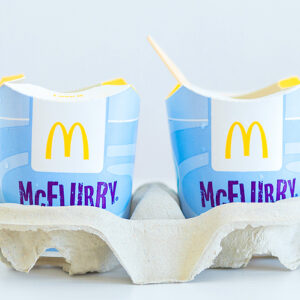I like a McFlurry as much as the next person. But why the Federal Trade Commission is concerned about whether or not I can get a McFlurry kind of boggles my mind. Yet they are, according to a recent Wall Street Journal report.
The issue that is taking the chill off one of our favorite snacks is why the machines always seem to be broken. As far back as 2017, McFlurryHeads were complaining all over social media about the state of the machines. Aside from the fairly obvious variable of a change in presidential administrations, why does the FTC care about this now?
Because this federal agency is charged with protecting us consumers from unfair business practices and even fraud. If McDonald’s franchisees are aware that either the soft-serve ice cream machines or the machines that mix the McFlurry work poorly and below the expected industry standard, there may actually be an FTC issue here.
In that case, McDonald’s would knowingly be luring us into their restaurants, well aware that many of us would be coming to a McDonald’s franchise either expressly for a McFlurry or to include one as part of our meal. McDonald’s also would realize, given how well they capture and track data and our habits in their stores, that many people who wanted a McFlurry would not simply leave, but rather purchase other things. This is where deception and perhaps even fraud become relevant.
As WSJ reported, the path from urban myth to FTC issue was certainly no secret for McDonald’s or its franchisees, who knew the ice cream machines were not only unreliable, they were also difficult to fix. In 2019, a private company, Kytch, built technology to help McDonald’s franchise owners diagnose when there was a real problem with the machines and to fix the machines themselves, saving a lot of McFlurry downtime. Of course, looking to find the loss where the win was within reach, McDonald’s told their franchisees they couldn’t use the Kitch technology. What prompted the FTC to finally get involved was a Kytch lawsuit against McDonald’s.
Tim George, a lawyer in Erie, Penn. said, “As much as we may be attached to our McFlurry or anything else a fast-food restaurant offers us, the real issue here is when false expectations are knowingly created by the restaurant. So offering something on the menu that you know won’t be able to be regularly served because of the known unreliability of a machine needed to serve it could be considered a deceptive trade practice.”
But where is the line between McDonald’s simply having unreliable McFlurry technology and deceiving consumers?
That remains to be seen, but it does seem clear McDonald’s has a good thing going on whether or not they are able to, on a given day, sell the McFlurry that so many people crave. And while a blended ice cream in a cup isn’t a critical situation for most of us on most days (though it may feel like it is) when businesses are allowed to get away with deceptive trade practices and fraud, they tend to expand and escalate them. So the next McFlurrygate might be something that actually affects our health and safety rather than our cravings.

